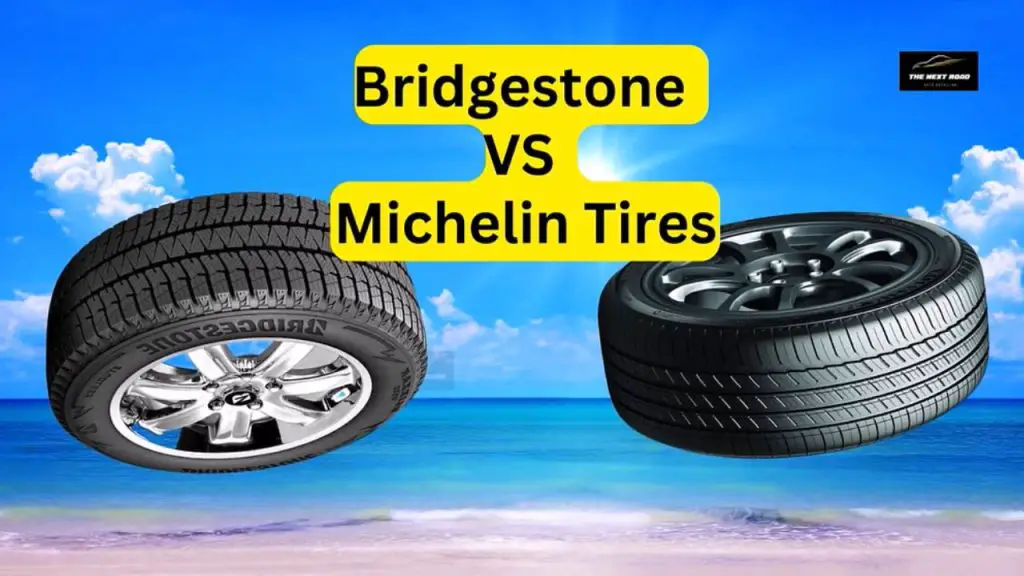Bridgestone vs. Michelin tires, it’s important to take into account aspects like cost, dependability, performance, selection, and innovation in technology. We explains the specifics of the tire differences between Bridgestone and Michelin. When contrasting you can get a thorough synopsis of the two brands here:
Bridgestone VS. Michelin Tires: Details Comparing
History of Bridgestone Tires
In 1931, Japanese multinational auto and truck parts manufacturer The Bridgestone Corporation was founded by Shojiro Ishibashi. The business initially manufactured rubber shoe fades before growing into a tire manufacturer. It has first tire launch in 1930.
Bridgestone has grown to be a major global tire company. It purchased businesses such as Firestone Company in 1988. Bridgestone is a leading global tire manufacturer with a strong market presence. Bridgestone is recognized for its dedication to excellent quality as technological innovation. It supplies an extensive selection of tires for all kinds of cars.
History of Michelin Tires
The tire industry was transformed by Michelin, a French tire firm founded in 1889 in Andre as well as Edouard Michelin. One of its notable discoveries was the removable inflatable tire. Due to its dedication for quality and innovation. The firm has become an international innovator in the tire sector and is renowned for its powerful, permanent tires.
Performance
Michelin is renowned for outstanding grip, handling, and braking across its product range. The product consistently excels in wet and dry conditions, providing comfort and fuel efficiency. Bridgestone offers competitive performance, particularly noted for their advancements in tire technology that enhance safety on wet surfaces. Bridgestone tires also perform excellently in various driving conditions but can sometimes be perceived as slightly less superior in ride comfort compared to Michelin.
Related: All Weather Tires VS Snow Tires: A Comprehensive Review
Related: Cooper Tires VS Goodyear: What Brand of Tires Is Better?

Product Range
For almost any kind of vehicle including sedans, SUVs, trucks, and motorbikes the Michelin delivers a wide range of tires. Their lineup addresses all seasonal needs including summer, winter, and all-season options.
Bridgestone similarly boasts an extensive array of tires with a wide application spectrum. Bridgestone is a widely recognized, international tire manufacturer with a solid track record of expansion and excellence.
Price
Because of their superior quality and the brand’s standing for dependability and performance, Michelin tires are typically more expensive. Even if they cost more up front, they’re frequently considered an investment in long-term worth.
Bridgestone prices are competitive and can offer a somewhat broader range depending on the model and type. They provide both high-end options similar in price to Michelin as well as more moderately
Durability
Michelin’s advanced materials and manufacturing techniques yield highly durable tires that maintain performance over time. This longevity is one of the reasons for their higher price point.
Bridgestone also produces durable tires with innovative technology aimed at extending tire life without sacrificing performance or safety. The durability between both brands is relatively comparable; decisions often come down to specific tire models.
Technology
Michelin invests significantly in R&D to create technologies like EverGrip—which extends wet grip ability as the tire wears—and modern compounds designed for low rolling resistance (improving fuel efficiency) without compromising longevity or safety.
Bridgestone, through its commitment to innovation, has developed several proprietary technologies such as NanoPro-Tech™ which optimizes tire performance on a molecular level enhancing fuel efficiency and reducing CO2 emissions.
Environmental Commitment
Both companies are leaders not just in tire technology but also in environmental stewardship: Through its airless Vision concept, increased use of sustainable materials, and pledges to lower overall environmental effect over the course of its product lifetime, Michelin is committed to sustainability.
With regard to sustainability, Bridgestone maintains high standards. It wants to reduce environmental impacts over the long run by using resources wisely, procuring materials ethically, and funding environmentally friendly product development methods.
Conclusion
In choosing between Bridgestone and Michelin tires Comparing: If the priority is absolute top-tier performance with less concern about price: Michelin might be preferable due to their edge in comfort and innovative features that maintain performance longer.
If looking for high-quality options with potentially better value or specific technological advantages (like improved wet handling by Bridgestone), plus a wider range including budget-friendly choices: Bridgestone could be more suitable.
Ultimately, both brands offer exceptional products recognized globally; your decision may depend on specific needs like climate condition preferences (e.g., stronger winter tire requirements), vehicle type compatibility (performance versus everyday driving), or budget constraints.
The Next Road (thenextroad.com) is an affiliate of the Amazon Services LLC Associates Program, so you can access the Amazon marketplace when on this domain. We will earn a commission from your qualified purchases.